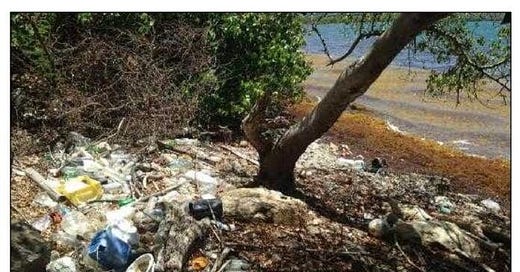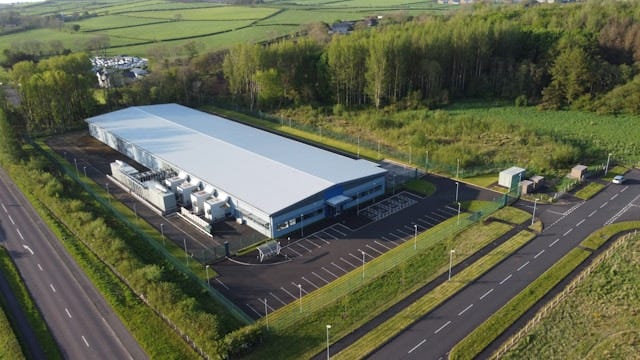🎧 The Uncomfortable Truth about Plastic Recycling No One Wants to Admit
Single-use plastics are a growing problem since they are hard to collect and difficult to recycle. They wind up in landfills and in public areas.
In April, the US Virgin Islands (or USVI) sued Coca-Cola and PepsiCo for false claims.
The claim? That consumers could easily recycle their plastic bottles.
Instead, the Islands have beaches littered with plastics and an overwhelmed waste management system.
The lawsuit claims that “purposefully manufacturing, bottling, and selling excessive amounts of beverages packaged in single-use plastic bottles without implementing or paying for an environmentally responsible way to dispose of them.”
Pollution from plastics is harmful to the environment and to humans
We’ve all seen the pictures. Birds strangled by plastic can holders. Plastic mountains in the ocean. Microplastics are showing up in most marine mammals and many fish.
There is evidence that humans absorb microplastics too. We don’t yet know how this affects us.
Since plastic takes a long time to decompose, between 100 and 1000 years, plastic waste is a growing problem.
The limited space for landfills on the USVI exacerbates the problem.
What the USVI lawsuit claims
The lawsuit claims that Coca-Cola and PepsiCo fool their consumers into thinking that plastic bottles can be sustainably recycled. In the US, the recycling industry sources 29 percent of plastic bottles.
And that number doesn’t capture plastic bottles that don’t go into recycling containers. In addition, what is recycled is often downcycled—made into something of lower quality that can’t be recycled.
In the USVI, the recycling industry sources 8.7 percent of plastic bottles.
The lawsuit also alleges that the bottlers promised to reduce one-time-use plastics. They didn’t. Instead, both companies have increased production of single use plastics.
This is a case where market prices don’t equal societal costs. There is an unpaid byproduct.
While most markets operate at a level where private costs and benefits equal societal costs and benefits, some do not. In these cases, we see market failure.
One example of market failure is the case of externalities.
What is an externality
An externality occurs when a product or process generates a byproduct that the price doesn’t cover. There are two kinds of externalities, positive and negative.
A positive externality is one that has added benefits to society. When a good or service has a positive externality, the price consumers pay is lower than the benefit to society. Examples include vaccinations and education.
When I was a child, I couldn’t have the measles, mumps, and rubella (MMR) vaccine. I was allergic to it. But since every child in the Georgia and New Jersey public school systems had the vaccine, I was covered.
(I had the shot when I was twenty-one (21) when a doctor pointed out that if I wanted to have children, I should get it.)
Higher education leads to lower levels of unemployment and shorter spells of unemployment, among other benefits. This reduces the costs of unemployment to the country.
When a good or service has a negative externality, the cost society pays is higher than the price consumers pay. For example, when we drive our gas-powered cars to work, we generate air pollution.
Air pollution causes higher levels of respiratory and heart problems.
In my post, May the Force Be with You, I described how my dad was sent to Copperhill, TN to deal with the problem of sulfuric acid caused by copper smelting.
There were days I couldn’t go outside when we lived there.
Plastics waste also causes negative externalities. But the problem is that it’s unclear who should pay for the damage.
Who pays for an externality
At the heart of the lawsuit is who should pay for the plastics pollution.
The problem is one of property rights. For example, people living close to data centers complain about the constant hum the factory produces.
Does the data center have the right to make the noise? Do the homeowners have the right not to hear it? How can the community resolve this situation? Does the company need to pay for more soundproofing, or should the community move?
The problem hinges on transactions costs and negotiating power.
Transaction costs are the price that one side or the other pays. If they are low, then the problem is easy to fix.
But if one side has more negotiating power, then the other side usually bears the expense. This is the economic foundation for environmental disputes, called The Coase Theorem after Nobel prize winning economist Ronald Coase.
In this and most cases, neither of these conditions applies.
The soda companies have more bargaining power and deeper pockets than the USVI does. And the costs of resolving the problem is substantial.
There are currently two lawsuits that mimic the dispute between the USVI and soda companies. One suit is Mayor and the City Council of Baltimore vs. PepsiCo, et.al.
The other is Sierra Club vs. Exxon Mobile over single-use plastics.
Thanks for reading,
Nikki
References
Douglas Main, MIT Technology Review, Think that your plastic is being recycled? Think again. October 12, 2023.
Emily Nuñez. OCEANA, That Plastic Bottle You Thought You Recycled May Have Been ‘Downcycled’ Instead. https://oceana.org/blog/recycling-myth-month-plastic-bottle-you-thought-you-recycled-may-have-been-downcycled-instead/, July 1, 2021.
Environmental Protection Agency, Impacts of Plastic Pollution, https://www.epa.gov/plastics/impacts-plastic-pollution, May 15, 2025.
Janeka Simon, The Virgin Islands Consortium. USVI Alleges Soft Drink Giants Misled Consumers, Caused Plastic Crisis in Territory. April 21, 2025.
Robson G. Santos, Gabriel E. Machovsky-Capuska and Ryan Andrades. Science, Plastic ingestion as an evolutionary trap: Toward a holistic understanding. DOI: 10.1126/science.abh0945, July 2, 2021.
Will Kenton, Investopedia. Externality: What It Means in Economics, With Positive and Negative Examples, June 18, 2024.






